Every child has the right to protection from violence
After almost seven weeks of heavy bombardment in the Gaza Strip, more than 5,300 Palestinian children have reportedly been killed — over 115 a day for 46 days straight. Well over 1.7 million people have been displaced from their homes.
Supplies of fuel, medicines and water are nearly depleted; only 10 percent of necessary food supplies have entered Gaza since the start of the conflict. The entire population — 2.2 million people, half of whom are children — is now food insecure and at risk of starvation.
The bombardment was launched in retaliation for a series of attacks on Oct. 7 that killed a reported 35 Israeli children; more than 30 were abducted. In Israel last week, UNICEF Deputy Executive Director Ted Chaiban met with the families of children being held hostage in Gaza. "They shared their anguish and fear that grows deeper by the minute, hour and day," he posted on social media. "I said that UNICEF will continue to do everything in our power to bring these children home where they belong."
Children in Gaza face a deepening humanitarian catastrophe
Inside Gaza, there is nowhere safe for 1 million children to turn.
"The parties to the conflict are committing grave violations against children; these include killing, maiming, abductions, attacks on schools and hospitals, and the denial of humanitarian access — all of which UNICEF condemns," said UNICEF Executive Director Catherine Russell. "Many children are missing and believed buried under the rubble of collapsed homes and buildings — the tragic result of the use of explosive weapons in populated areas."
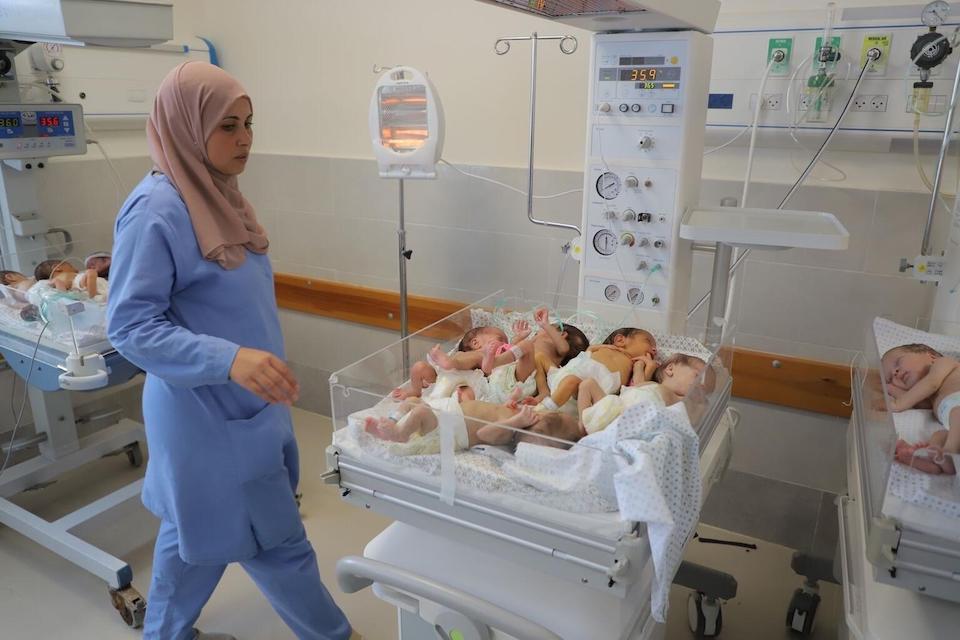
UNICEF and partners are supporting hospitals struggling to provide urgent care for babies and children
More than two-thirds of Gaza's hospitals are no longer functioning because they have run out of fuel or water, or because of damage sustained in attacks. At Al Nasr Hospital in Khan Younis, southern Gaza, tiny babies cling to life in incubators as doctors worry about how they will keep the machines running without fuel.
UNICEF has been providing medical and baby supplies to hospitals in southern and central Gaza, to support approximately 244,000 people. On Nov. 19, UNICEF worked with partners to rescue 31 premature babies from Al Shifa Hospital in northern Gaza under extremely dangerous conditions and relocated them to Al-Helal Al-Emarati Hospital in the south.
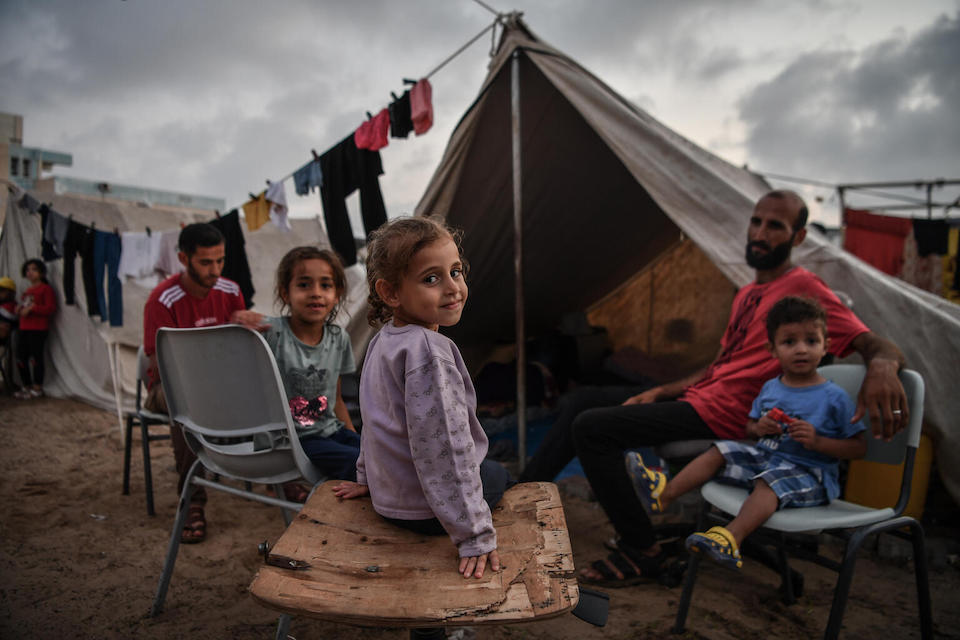
More than 100 UNRWA aid workers have lost their lives since October
UNICEF staff and colleagues in Gaza have remained at their posts to deliver for children amid the danger and devastation. More than 100 UNRWA (the United Nations Relief and Works Agency for Palestine Refugees in the Near East) have been killed since October — the highest number of UN aid workers killed in a conflict in such a short time.
Many people, including UNICEF staff and their families, are now living in overcrowded shelters with very little access to safe water or adequate sanitation, conditions that are leading to disease outbreaks that could be life-threatening for vulnerable groups like newborns, children and women — particularly those who are malnourished.
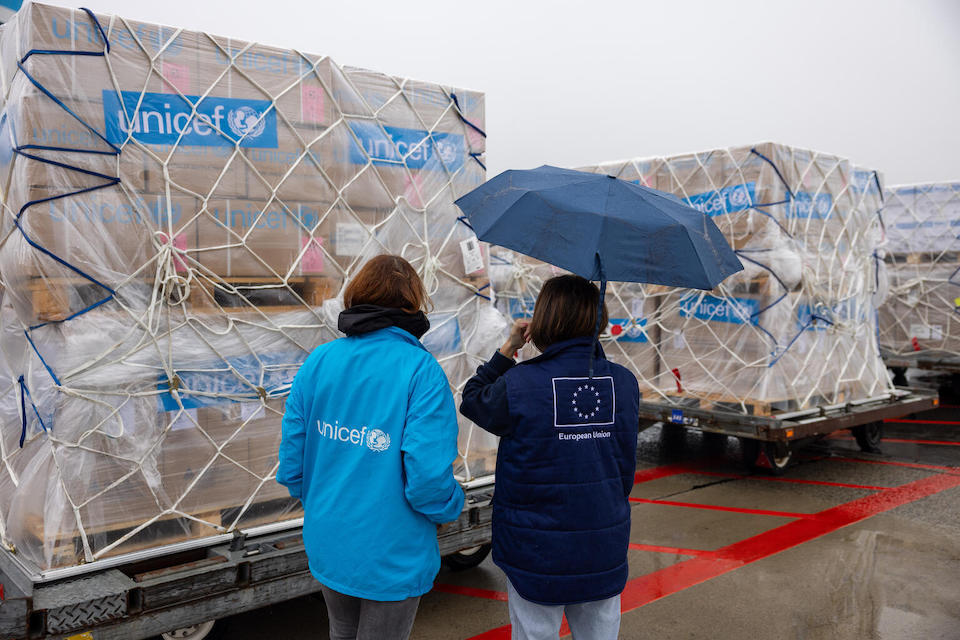
UNICEF has been pressing for unimpeded humanitarian access to deliver desperately needed supplies
UNICEF is preparing to quickly scale up deliveries of desperately needed supplies during a planned limited ceasefire. Since the start of the conflict, UNICEF has been working to reach families in Gaza with humanitarian assistance including:
- bottled water, hygiene kits, water purification tablets and collapsible water containers, along with water trucking to shelters serving an estimated 1 million people including 560,000 children
- lifesaving medical supplies including medicines and consumables, and water trucks for hospitals
- solid waste containers and cleaning services to address sanitation needs in overcrowded shelters
- humanitarian cash transfers to help families purchase necessities
- recreational activities for thousands of children
- nutritional supplements for breastfeeding mothers struggling to feed themselves and their babies
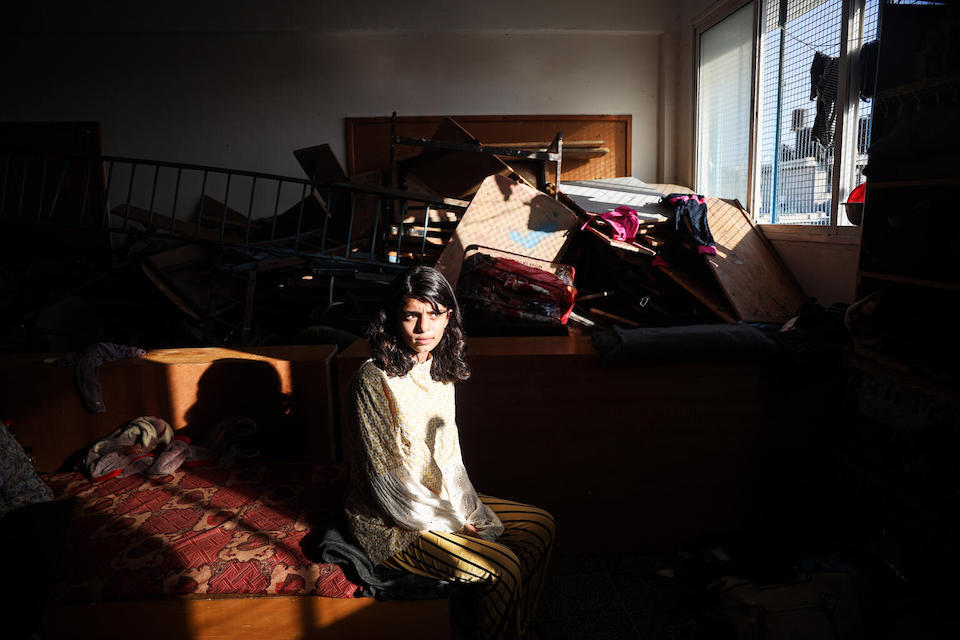
As winter approaches and needs skyrocket, unimpeded humanitarian access is a must
The intermittent opening of Gaza’s border crossings to shipments of humanitarian supplies has been insufficient to meet the skyrocketing needs. Without fuel, desalination plants cannot produce drinking water and humanitarian supplies cannot be distributed. And with winter just around the corner, the need for fuel could become even more acute.
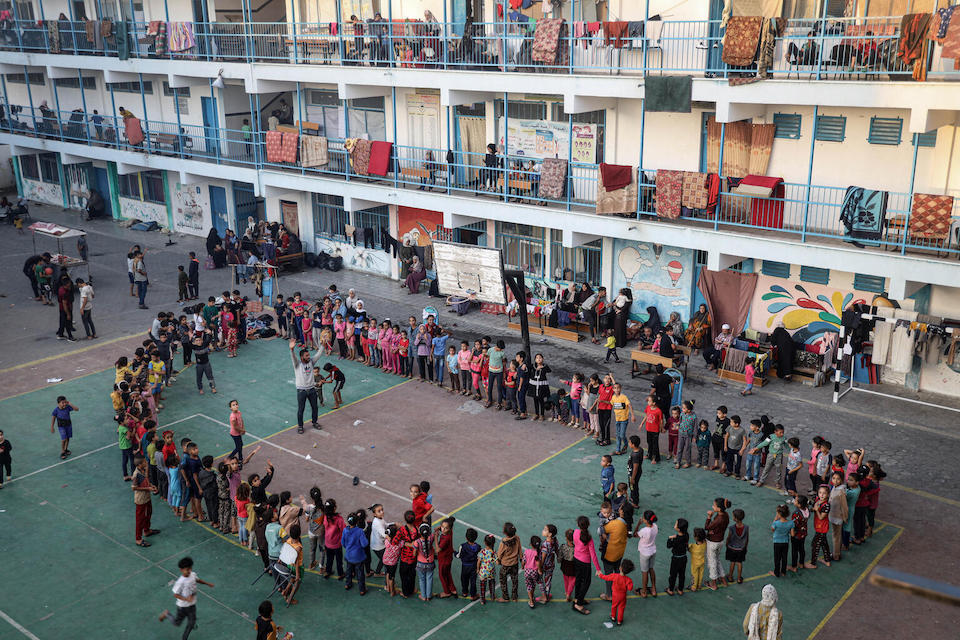
Temporary ceasefires are not enough: every child has the right to grow up in peace
"[T]he war must be brought to an end and the killing and maiming of children must stop immediately," Russell told the U.N, Security Council on Nov. 22. "[F]or children to survive, for humanitarian workers to stay and effectively deliver, humanitarian pauses are simply not enough. UNICEF is calling for an urgent humanitarian ceasefire to immediately put a stop to this carnage."
UNICEF won't stop working to meet the needs of children currently facing an urgent and pressing need for protection and humanitarian assistance. Your contribution can make a difference. Please donate today.
"come" - Google News
November 21, 2023 at 03:31AM
https://ift.tt/ZU93Hq8
Gaza and Israel: Children's Safety Must Come First - UNICEF USA
"come" - Google News
https://ift.tt/KAWLsc8
Shoes Man Tutorial
Pos News Update
Meme Update
Korean Entertainment News
Japan News Update
Bagikan Berita Ini














0 Response to "Gaza and Israel: Children's Safety Must Come First - UNICEF USA"
Post a Comment